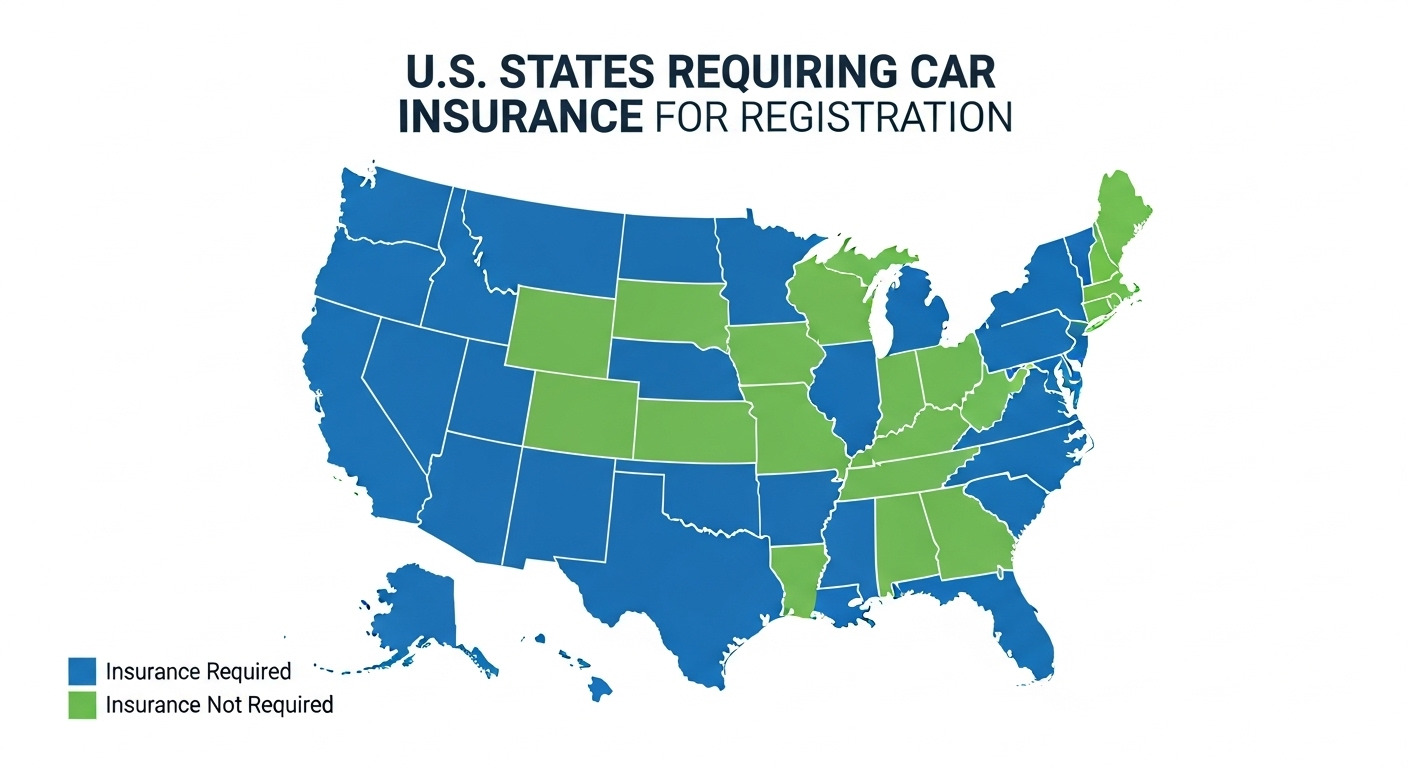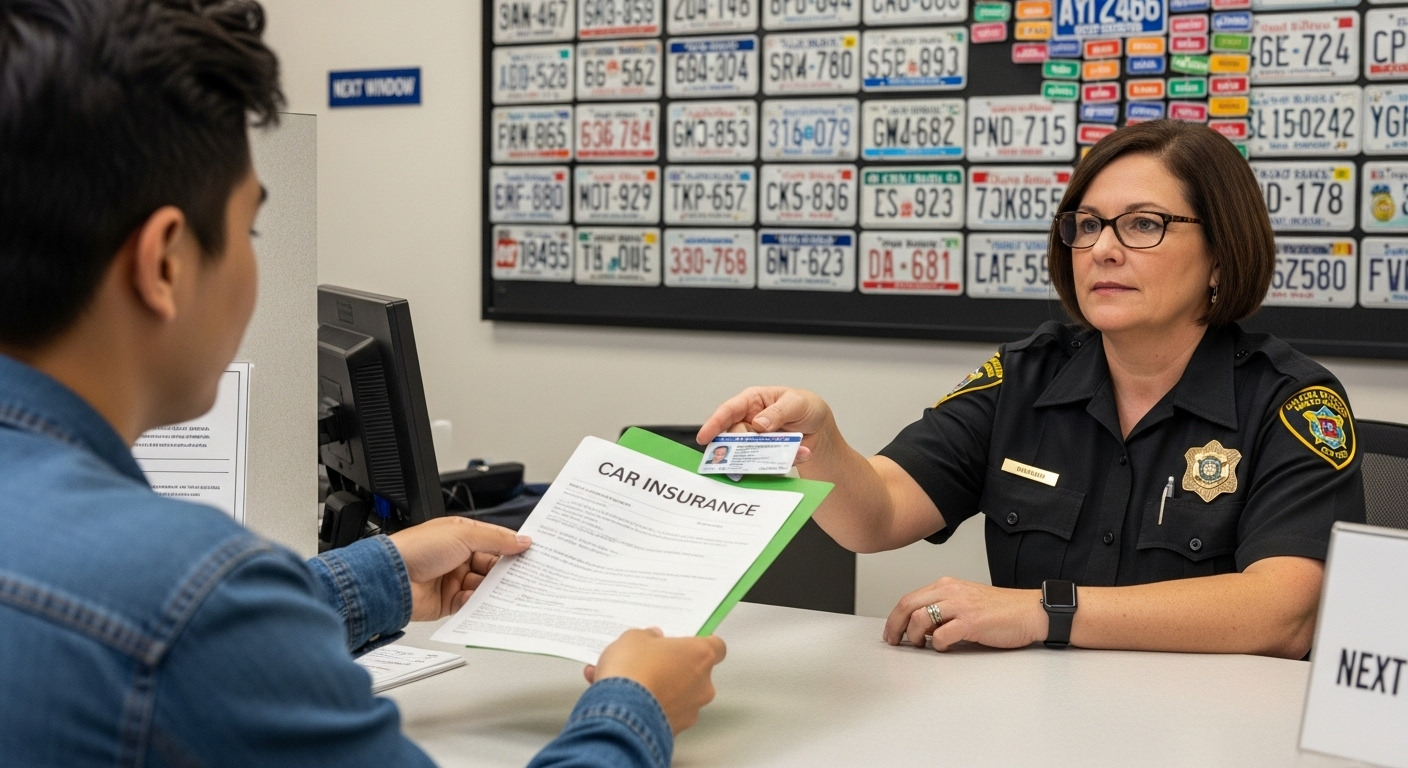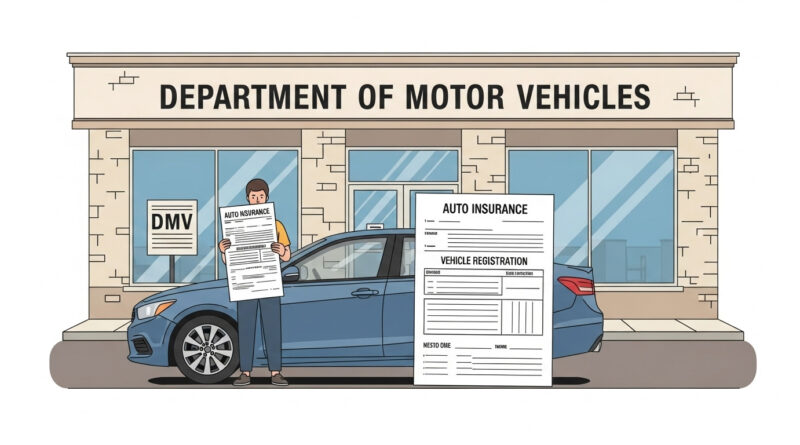Do You Need Insurance to Register a Car? Complete Guide to State Rules, Costs & Exceptions
When you buy a car, one of the first things you’ll need to do is register it with your state’s Department of Motor Vehicles (DMV). But a common question many drivers ask is: Do you need insurance to register a car?
The short answer is that in most U.S. states, yes, you must show proof of insurance before your car can be legally registered. However, there are a few exceptions, and the requirements can vary depending on the state where you live.
In this guide, we’ll cover everything you need to know about insurance and car registration, including why insurance is required, how much it costs, exceptions, penalties for non-compliance, and frequently asked questions.
What Does It Mean to Register a Car?
Car registration is the legal process of linking a vehicle to its owner. The DMV or similar state agency issues you a license plate, registration certificate, and sometimes a sticker for your windshield or plate.
Registering your car ensures that:
-
Your vehicle is recognized as legally allowed on the road.
-
The government can track ownership, taxes, and inspection records.
-
Law enforcement can identify the vehicle in case of accidents, theft, or violations.
Without registration, you cannot legally drive your car on public roads.
Do You Need Insurance to Register a Car?
In most states, proof of auto insurance is mandatory before registration. This ensures that if you are involved in an accident, there is financial protection in place for both you and others.
-
Yes, insurance is required in almost all states.
-
A few states allow registration without immediate proof of insurance, but you must show it before driving.
-
The insurance coverage required usually includes liability insurance at minimum.
Essentially, insurance is tied to registration to protect drivers and the public from the costs of accidents.

Why Do States Require Insurance for Car Registration?
The main reason is financial responsibility. Accidents can cause serious damage, injuries, and medical costs. States want to ensure that drivers can cover these costs and not burden other drivers or taxpayers.
Insurance for registration:
-
Protects other drivers if you cause an accident.
-
Helps cover medical expenses and property damage.
-
Ensures compliance with state traffic laws.
Without insurance, registering a car would allow uninsured vehicles on the road, creating risks for everyone.
State-by-State Rules on Insurance & Registration
While most states have similar rules, there are some differences worth noting:
-
Most States (like California, Texas, New York, Florida): Require proof of insurance before registration.
-
New Hampshire & Virginia: Do not mandate auto insurance, but drivers must show financial responsibility (such as paying a fee or proving ability to cover damages).
-
Mississippi & North Carolina: Require insurance both at registration and at all times during ownership.
Always check with your state’s DMV or transportation department to confirm the exact requirements.
How Much Insurance Do You Need to Register a Car?
Each state sets minimum insurance coverage levels. Generally, the requirements include liability coverage, which pays for damages and injuries you cause to others.
Typical minimum liability insurance includes:
-
Bodily injury liability per person: $25,000–$50,000
-
Bodily injury liability per accident: $50,000–$100,000
-
Property damage liability: $10,000–$25,000
Many drivers choose coverage above the state minimum to better protect themselves financially.
Exceptions: Can You Register a Car Without Insurance?
In some states, you may be able to register without immediate proof of insurance under special conditions:
-
Non-operational registration: If your car won’t be driven (such as a classic or stored car).
-
Financial responsibility states (NH, VA): You can pay a fee or show financial capability instead of buying insurance.
-
Temporary registration permits: Some states issue temporary tags before insurance is finalized.
Even in these cases, you cannot drive legally without insurance.
What Happens If You Register a Car Without Insurance?
If you attempt to register or drive a car without proper insurance, consequences may include:
-
Denial of registration.
-
Suspension of your driver’s license.
-
Hefty fines (up to several hundred dollars).
-
Vehicle impoundment in severe cases.
-
Higher insurance premiums in the future.
Driving uninsured is not only illegal but also financially risky.
Costs of Car Registration With Insurance
Registration costs vary by state, but here’s a breakdown:
-
Insurance premiums: $500–$1,500 annually depending on your state, driving history, and coverage.
-
Registration fees: $20–$200 depending on state rules.
-
Other costs: Title fees, inspection fees, and local taxes.
Budget both your insurance and registration fees together when buying a new or used car.
Steps to Register a Car With Insurance
Here’s how the process typically works:
-
Buy car insurance that meets your state’s minimum requirements.
-
Gather documents: proof of ownership, ID, proof of address, title, and insurance card.
-
Visit your DMV or register online (if your state offers it).
-
Pay registration fees and taxes.
-
Receive your plates, sticker, and registration certificate.
Most states require you to update registration annually or every two years.
Tips for Saving on Insurance Before Registering a Car
Car insurance is one of the biggest costs tied to registration, but you can lower it:
-
Compare quotes from multiple insurers.
-
Bundle auto insurance with renters or homeowners insurance.
-
Ask about student, safe driver, or military discounts.
-
Raise your deductible to reduce monthly payments.
-
Consider telematics programs that track safe driving habits.
Savings on insurance can directly reduce the overall cost of car ownership.

FAQs About Car Registration and Insurance
1. Do you need insurance to register a car in every state?
No. While most states require it, places like New Hampshire and Virginia allow alternatives. However, in nearly all states, you need insurance before legally driving.
2. Can I buy insurance after registering my car?
In most cases, no. States require proof of insurance before or during registration. Driving uninsured, even after registering, is illegal and risky.
3. What type of insurance do I need for registration?
Most states require at least liability insurance. Some also mandate uninsured motorist coverage or personal injury protection (PIP).
4. Can I register a car without driving it?
Yes. If you are not planning to drive it, you may apply for non-operational registration in some states. Insurance may not be required in this case.
5. What happens if my insurance lapses after registration?
Your DMV will be notified by your insurance company. This may result in suspension of registration, fines, or penalties until coverage is reinstated.
6. Does temporary car insurance count for registration?
Yes, temporary or short-term insurance can be used as long as it meets state minimums. However, it must remain active during the registration process.
7. Is insurance required if I buy a car but haven’t driven it yet?
If the car is being stored and not driven, insurance may not be required until you plan to register and use it on public roads.
8. Do dealerships help with insurance for registration?
Yes. Many dealerships partner with insurers to help buyers secure coverage immediately so the car can be registered and driven off the lot legally.
Final Thoughts
So, do you need insurance to register a car? In most states, yes—you must show proof of insurance before completing the registration process. Insurance ensures financial responsibility, protects other drivers, and keeps you compliant with the law.
While there are limited exceptions, the best practice is to secure at least liability insurance before heading to the DMV. Not only does this keep you legal, but it also prevents costly penalties and financial risks in case of an accident. If you want to know more visit on wikipedianews.

